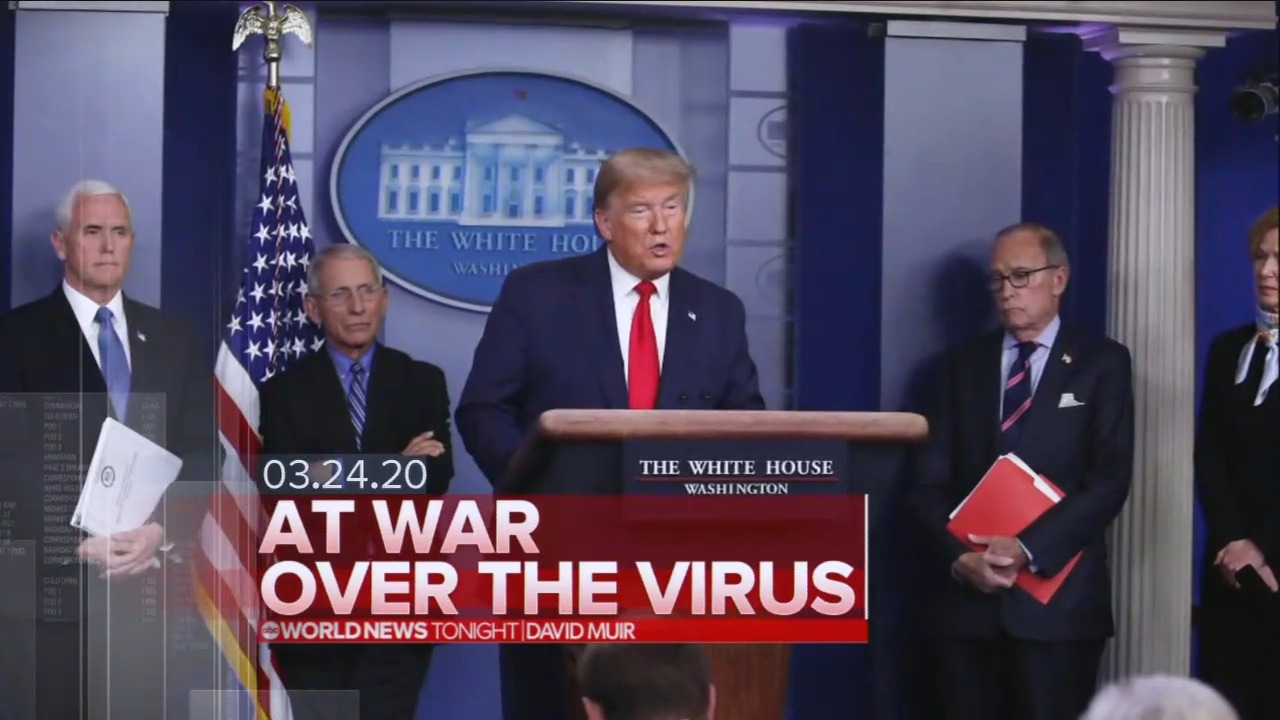 There is nothing abhorred more by the mandarins of the 24-hour news cycle than hope.
There is nothing abhorred more by the mandarins of the 24-hour news cycle than hope.
Reporting must beget more reporting.
If not, viewers lose interested and change channels and teleprompter readers like Don Lemon and Rachel Maddow get less face time. Hence, broadcasts of chaos, doom, and gloom must end with a promise of more doom and gloom to follow.
"Stand by."
The old witticism, "If it bleeds, it leads" is also a truism for tawdry television.
Don Henley of The Eagles was oh so right in his classic song, "Dirty Laundry."
"I make my living off the evening news. Just give me something-something I can use. People love it when you lose, They love dirty laundry. Well, I coulda been an actor, but I wound up here. I just have to look good, I don't have to be clear. Come and whisper in my ear. Give us dirty laundry."
This is how the news cycle perpetuates itself.
Knowing this, it’s not surprising that they’ve lionized the grim somber predictions of New York Governor Andrew Cuomo and condemned the more rosy predictions of President Donald Trump. Maybe that’s why Trump’s 60% approval rating on dealing with the COVID-19 crisis caught the media by surprise.
They thought everybody in America thought like everybody in the newsroom.
The media and the "intellectual elites" like to celebrate those who cast America and its future in a dim light while most Americans reject it. They celebrate dystopia and the dusk of America. Conservatives celebrate the dawn of America.
As Ronald Reagan said toward the end of his presidency, our country is not getting old and weaker, it is getting stronger and younger. Liberals never understood Reagan and they really don’t understand Trump.
When Franklin Roosevelt, in the midst of the Great Depression, outlined his vision of hope and optimism for the nation, critics accused him of "shadow boxing with realities."
The nattering nabobs of negativity also criticized his "Fireside Chats" as hopelessly unrealistic. Critics later dismissed the essential optimism of President John Kennedy as youthful naivete. But President Jimmy Carter made contrition and contraction a centerpiece of his presidency and he was applauded for his malaise.
Reagan’s 1980 campaign was the exact opposite.
To Carter, America’s greatest days were behind it and the sooner average American accepted it, the better off they would be. Happy days were no longer here again.
To Reagan, this was nonsense. If America was about anything, it was about hope.
America’s finest days, he believed, were ahead of it.
While liberal historians look back on this legacy, they overwhelmingly side with Carter over Reagan. Carter is portrayed as a somber and true leader, telling tough truths to the masses too senseless to comprehend their own decline.
Reagan is portrayed as a delusional fool who preyed on American buffoonery and the false belief of "victory" in the Cold War or a renewal of America.
Carter left office with an abysmal approval rating. Reagan left office with a 71% rating. The elites just couldn’t figure it out. Even President Barack Obama, whose 2008 campaign promise of "Hope" and "Change We Can Believe In" was wholeheartedly embraced, not because it was optimistic, but because it was grounded in his assumption that things were always bad and would always be bad. That America needed Obama to "set America right." To "make America over again."
The sycophantic Washington Post claimed Obama made America great again.
How?
Harry Truman once said a president’s job is to say "Yes" and "No," but mostly "No."
What FDR, JFK, Reagan and yes, Trump understood and understand, is that the main purpose of being president is to say"Yes" and "No," but also to lead the American people and give them courage.
Aristotle said, "courage was the first of human qualities because it is the quality that guarantees all the others." Reinhold Niebuhr illustrated perfectly the difference between believers and non-believers in "The Children of Light and The Children of Darkness."
One kind of people light candles, do not hide them under bushel baskets and the other kind curses the darkness.
Many presidents are attacked as being too slow to respond to a crisis. JFK to recognize the Soviet threat. Johnson to anticipate the North Vietnamese. Carter for the Iranian Hostage Crisis. Reagan for Iran Contra. And now Trump is being attacked for not recognizing the threat of coronavirus.
Some things never change.
All these presidents were vastly different men, yet some understand the presidency in crisis better than others. Today, as they have continually done in the past, any optimistic timeline put forth by Trump regarding the current crisis is blasted, while the scariest and most destructive forecasts are rewarded.
What the media, yet again, fails to see is what the average American sees everyday.
Right now, there are millions of people who are trapped at home with nothing to do but watch their back accounts slowly and painfully dwindle to zero. When they turn on the news and they see pundits calling for 60-day quarantines, it might as well be 60 years.
Either way, they see little survival for them or their families.
Trump should defer to the experts and trust their opinions, but he should also keep calling for optimism and hope. He should keep putting forward a more optimistic timeline, if for no other reason than to reassure average Americans that there is a light at the end of this tunnel. That there is someone in this system who is fighting to get them back to work and give them back their lives. Who is making their future a priority, not the past.
Trust the experts, but keep punching Mr. President.
Keep punching.
[Cross-posted from Newsmax.]




